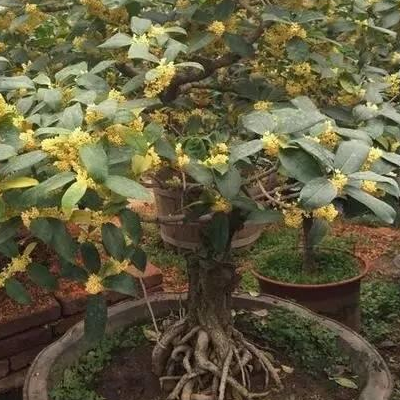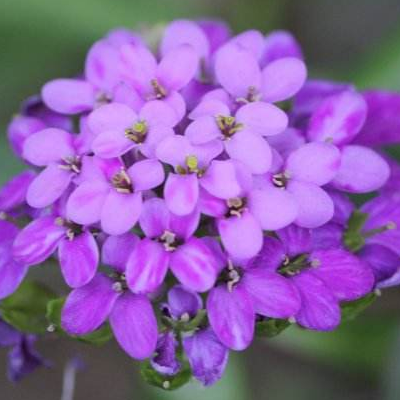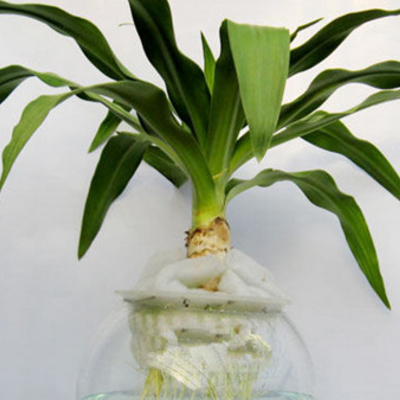How much is the planting technique of potted sweet-scented osmanthus trees?
Sweet-scented osmanthus tree, this is what many people like, especially when blooming, that is fragrant, potted sweet-scented osmanthus tree planting technology is what? How much is the bonsai sweet-scented osmanthus tree?

Planting techniques of potted sweet-scented osmanthus trees
Potted sweet-scented osmanthus should choose short and strong plants. A plant with a thicker trunk and symmetrical branches and leaves. Pot soil requires loose, fertile, well-drained sandy loam, too heavy or loose soil, is not suitable for sweet-scented osmanthus growth, generally with rotten leaf soil 50%, garden soil 40%, rice chaff ash 10% mixed use.
Osmanthus fragrans send new shoots in spring and autumn every year, but spring shoots are the best. It generally germinates in March, develops in late April, grows into semi-old branches at the end of June, forms flower buds at high temperature in August, and blossoms at the end of September.
The next year, the branches also have flowers, but the flowers are few and the quality is poor. Therefore, it needs to be pruned after blooming in autumn. When pruning, according to the growth potential of the plant, the overdense branches should be thinned properly, so that the sturdy branches are evenly left on each side branch, and the branches are too dense, which will affect photosynthesis, which will lead to physiological disorders and affect the budding and flowering.
At the same time, the overgrown branches in summer and autumn should be cut off. The second pruning was carried out before the bud germinated in early spring, cutting off all the withered branches, weak branches, disease and insect branches after winter. If the plant is too high and the lower branches are not beautiful, the top of the trunk can be trimmed so that adventitious buds occur in the lower parts and new branches germinate. In addition, the sprouting shoots should be often cut off during the growth period, so that nutrients are concentrated, which is conducive to spring growth and flower growth.
Although sweet-scented osmanthus is not strict with light, it blossoms more and has a strong aroma in a sunny and well-ventilated environment. If you put it in a semi-overcast place for a long time, it will blossom less and the aroma will be light. Potted cinnamon is not cold-resistant, it should be placed indoors in the sunny place in winter, and it can survive the winter if it is more than 4 ℃.
Poor light, low temperature is easy to cause fallen leaves. The pot plant can be moved to the outdoor sunny place for maintenance in late March of the following year.
The management of fertilizer and water should be strengthened during the growing period. Potted sweet-scented osmanthus plants use larger pots, which are usually watered every 5 days in spring and autumn. Sweet-scented osmanthus avoid dampness, especially when it blossoms in autumn, too wet will cause falling flowers.
You can keep the basin soil moist at ordinary times. Summer is the peak season for plant growth. when the temperature is high, the basin soil is easy to be watered and watered enough. watering once every morning, depending on the degree of dryness and wetness of the basin soil in the evening, you can water a little water again. The plum rain season and summer showers should pour water into the side basin in time to avoid rotting roots.
Sweet-scented osmanthus is very fond of fertilizer, and 30% cake fertilizer, water and human feces (which must be fully mature) are applied every 10 days during spring germination to promote sprouting.
After July, 30% cooked chicken and pigeon dung water or fish mixed water was applied, or 0. 5% was added to the above fertilizer solution. 5%-1% calcium superphosphate to promote flower bud growth and produce good flowers.
Do not apply fertilizer immediately when the basin soil is too dry. Water the basin soil a little bit and then apply it to prevent the leaves from burning and curling.
Price of bonsai Osmanthus trees:
The price of bonsai sweet-scented osmanthus trees has a lot to do with the size and shape of sweet-scented osmanthus trees, from 80cm to 150cm.
About the bonsai sweet-scented osmanthus tree planting method and the price is introduced here, like the little friend, hurry up to one at home.
Planting techniques of potted Osmanthus fragrans planting techniques and points for attention of potted sweet-scented osmanthus trees
August is filled with the fragrance of sweet-scented osmanthus, his breath of its beauty so that many people can not forget now, so many people slowly fell in love with the charming fragrance of sweet-scented osmanthus. Nowadays, many people plant sweet-scented osmanthus trees at home. Do you know the planting skills and precautions of sweet-scented osmanthus trees? let's follow our editor to see how to cultivate sweet-scented osmanthus trees.
Sweet-scented osmanthus tree is evergreen all the year round, and its branches are luxuriant. It blossoms in autumn, and it can be known as "monopolizing three Autumn to press Qunfang". It is widely used in gardens, often as landscaped trees, some solitary planting and some opposite planting at the same time. Sweet-scented osmanthus trees after continuous artificial cultivation, there are several kinds of sweet-scented osmanthus trees, such as cinnamon, cinnamon, silver osmanthus and four seasons osmanthus. Cinnamon, golden osmanthus and silver osmanthus all bloom in autumn and can be collectively called August osmanthus.
The conservation technology of sweet-scented osmanthus trees is in summer, the newly planted sweet-scented osmanthus trees should be watered thoroughly, and in the flowering period in the middle of September, appropriate watering should be taken to keep the soil moist, thin fertilizer should be applied frequently, quick-acting nitrogen fertilizer should be given priority to, reasonable pruning, and photosynthesis should be strengthened. reduce diseases and insect pests.
When potted sweet-scented osmanthus is watered, it will not be dry or watered, but it will be thoroughly watered. If the temperature is high in summer, the amount of water should be large. The temperature is above 25 degrees and it is watered every afternoon. Keep the soil and air moist when sweet-scented osmanthus blossoms and spray more water on the leaves to increase the relative humidity of the air.
The attention of potted sweet-scented osmanthus is to choose slightly acidic soil first; at the same time, watering should be timely, and the principle of "two less and one more" should be grasped; manure should be applied skillfully every 10 days in spring, thin rotten chicken, duck manure or fish mixed water should be applied after July, and liquid fertilizer dominated by phosphate fertilizer should be applied at the beginning of September; proper pruning. More information: | what are the functions of mulberry leaves? | how to grow irises? Iris picture display | introduction to the culture method of lovegrass | | what are the culture methods of thousand days red? | talk about the method of high-pressure propagation of azaleas | Platycodon grandiflorum flower picture display | | radiation-proof flowers, what flowers can protect against radiation | how to raise iron trees? The culture method of iron tree | is the fairy ball protected against radiation? |
Planting techniques of potted Osmanthus fragrans
Sweet-scented osmanthus is a common name for many trees of the genus Oleacea in China. it is widely used in garden construction. the main cultivated varieties are Jin Gui, Yin Gui, Dan Gui, laurel and so on. It has been cultivated in China for more than 2500 years and has been deeply loved by the Chinese people since ancient times. it is regarded as a traditional famous flower. Let's take a look at the planting techniques of potted osmanthus trees.
Planting environment of Osmanthus fragrans
1. Temperature: sweet-scented osmanthus trees like warmth. The average temperature in the planting area is 14: 28 ℃, the average temperature in July is 24: 28 ℃, and the average temperature in January is more than 0 ℃. It can withstand the lowest temperature of-13 ℃, and the optimum growth temperature is 15: 28 ℃. It can overwinter in the open field in the south of Qinling Mountains and Huaihe River in China. Not very hardy, but compared with other evergreen broad-leaved trees, it is still a relatively hardy tree species.
2. Moisture: sweet-scented osmanthus trees like to be moist, and humidity is extremely important to the growth and development of sweet-scented osmanthus, requiring an average annual humidity of 75-85% and an annual precipitation of about 1000 mm, especially when young and adult trees bloom, which will affect flowering in case of drought. Avoid stagnant water, but also have a certain ability to withstand drought.
3. Light: sweet-scented osmanthus likes sunlight and can bear shade. Under full light, its branches and leaves grow luxuriantly, bloom densely, and grow sparsely in the shade. If potted in the north, it is necessary to pay attention to sufficient light to facilitate growth and flower bud formation. Strong sunlight and shade are disadvantageous to its growth, and it is generally required to light 6-8 hours a day.
4. Soil: sweet-scented osmanthus is not strict on soil, except alkaline soil and low-lying land or soil with too heavy clay and poor drainage, it can generally grow, but the slightly acidic sandy loam with deep soil layer, loose and fertile soil and good drainage is the most suitable.
5. Air: sweet-scented osmanthus has a certain resistance to harmful gases such as chlorine, sulfur dioxide and hydrogen fluoride, and has a strong ability to absorb dust. It is suitable to be planted in a ventilated and transparent place, likes a clean and ventilated environment, and is not resistant to smoke and dust. often can't blossom after being injured.
- Prev

What is the maintenance method of the florescence of qu qu Hua?
Qu Hua, this is a kind of plant, this qu Hua is super like by many people, when is the florescence of this qu Hua? How to maintain the florescence of qu flower: the florescence of qu Hua: qu Hua is a plant that blossoms in spring and summer, and the flowering period is usually in May.
- Next

The hydroponic culture method of Wenshu orchid what if the leaves turn yellow?
Wenshulan, many people have seen this plant. This Wenshulan is super good-looking. What is the hydroponic method of Wenshulan? Wenshu orchid leaves yellow how to do: Wenshu orchid hydroponics method: 1, the use of transparent glassware. It is necessary to meet the nutrients and photosynthesis of Wenshu orchid during its growth period.
Related
- Fuxing push coffee new agricultural production and marketing class: lack of small-scale processing plants
- Jujube rice field leisure farm deep ploughing Yilan for five years to create a space for organic food and play
- Nongyu Farm-A trial of organic papaya for brave women with advanced technology
- Four points for attention in the prevention and control of diseases and insect pests of edible fungi
- How to add nutrient solution to Edible Fungi
- Is there any good way to control edible fungus mites?
- Open Inoculation Technology of Edible Fungi
- Is there any clever way to use fertilizer for edible fungus in winter?
- What agents are used to kill the pathogens of edible fungi in the mushroom shed?
- Rapid drying of Edible Fungi

